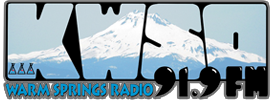Local News
KWSO News 5/1/19
A week after the U.S. State Department announced the end of waivers for countries to import oil from Iran, pump prices continue to climb. The national and Oregon averages are at year-to-date highs, and the Oregon average is at its highest price in 4 1/2 years, AAA Oregon/Idaho reported Tuesday. Spokesperson Marie Dodds said there are no refineries in Oregon. The state gets most of its oil product from California. Right now, those refineries are shut down as they transition from a winter blend to a summer blend. Dodds expects the refineries will be back online within a matter of weeks. Until then, she said average prices could top out around $3.50, or even $3.60.
While the Northwest has seen massive infernos in recent years, a new report shows its forests actually are experiencing a historical deficit of fires. That deficit could be fueling recent, dangerous wildfire seasons. The study shows only a tenth of forest acreage in Oregon and Washington burned between 1984 and 2015, compared with a century earlier. However, 36 percent of those fires were high severity, compared with about 6 to 9 percent historically. Ryan Haugo, with The Nature Conservancy in Oregon and the study’s lead author, says with the added pressure of climate change, the need is urgent to better manage forests.
“The Missing Fire” study was conducted by The Nature Conservancy, U-S Forest Service, and University of Idaho. Paul Hessburg is a research landscape ecologist at the U-S Forest Service’s Pacific Northwest Research Station. He says thinning forests of the fuel that drives massive blazes is a key strategy his agency is using in this fight. They’re also focused on using prescribed and managed fires to restore fire’s natural place in the ecology when they can.
The study found the fire deficit is worse in eastern Oregon and Washington, where only 3 percent of the historical acreage has burned.
PORTLAND, Ore. (AP) — Federal legislation to improve sanitation and water supplies at fishing sites crucial to the heritage of tribes has passed the U.S. House after three years of delays. The bill now heads to the U.S. Senate, where similar legislation has also been introduced. The House bill that passed Monday would provide $11 million for improvements at alternative fishing sites created by the U.S. government after flooding from dam construction on the Columbia River inundated tribal homes and fishing camps. Charles Hudson, with the Columbia River Inter-Tribal Fish Commission, says the commission has identified 18 sites that need attention in both Oregon and Washington.
The Confederated Tribes of Warm Springs are now the custodians of 1,200 additional acres of critical habitat along the Middle Fork John Day River, thanks to a recent land transaction with The Nature Conservancy. Ownership of the property, called the Dunstan Homestead Preserve, transferred to the Tribes in April. The land’s critical fish and wildlife habitat will remain under protection and stewardship through a partnership between The Nature Conservancy, the Tribes and the Bonneville Power Administration. The Dunstan Homestead Preserve is in the upper reaches of the Middle Fork John Day River at the heart of Chinook salmon spawning and rearing territory. The river’s wide valley bottoms, gentle gradient and multiple side channels support one of the state’s healthiest populations of wild spring Chinook salmon.
Here is the latest information from the Warm Springs Fishing & Hunting Hotline: 2019 spring salmon season at Sherars Falls fishing may take place until July 15th, Thursday to Saturday from dawn until dusk with an initial harvest cap of 200 fish. The Fish and Wildlife committee will monitor the fishery weekly to see if modifications are necessary. The Hood River sub-basin including all forks and tributaries is open through July 15th for spring Chinook salmon, with the exception of areas that are closed year round. Only marked hatchery chinook may be retained. If 378 Hood River origin adults have not passed Bonneville Dam by May 15, an “emergency closure” may be implemented by the Fish and Wildlife Committee in consultation with the Branch of Natural Resources. And, the entire John Day River is open from through July 15th for spring chinook salmon, with the exception of the John Day River upstream of the Sheep Rock National Monument and all tributaries. Further information about each area is available on the hotline 541-553-2000.

